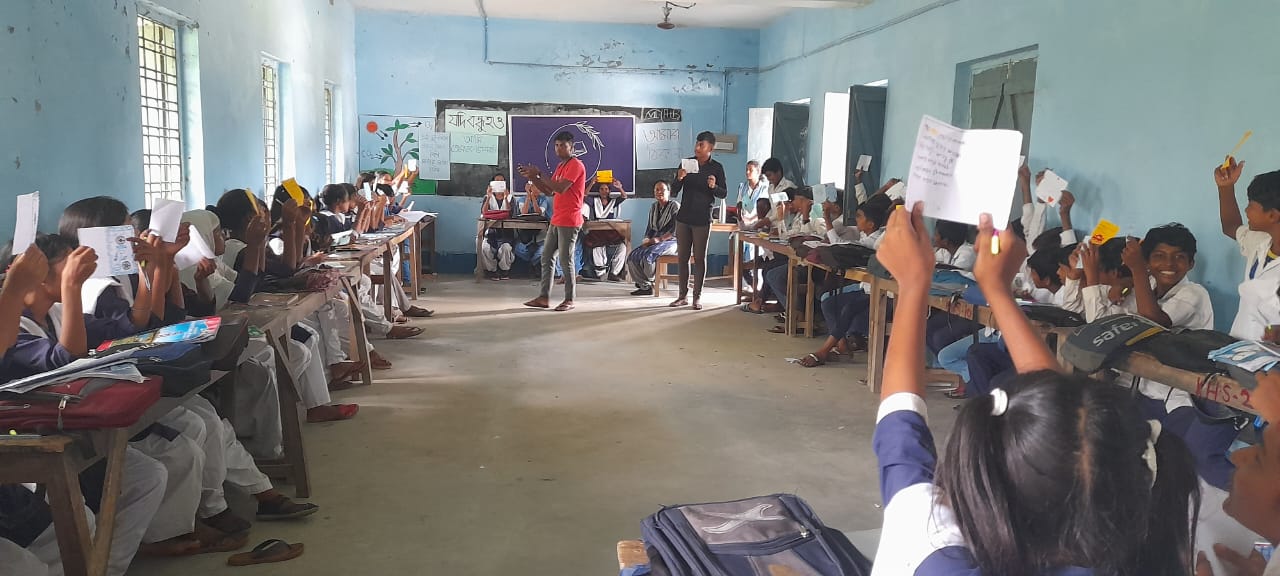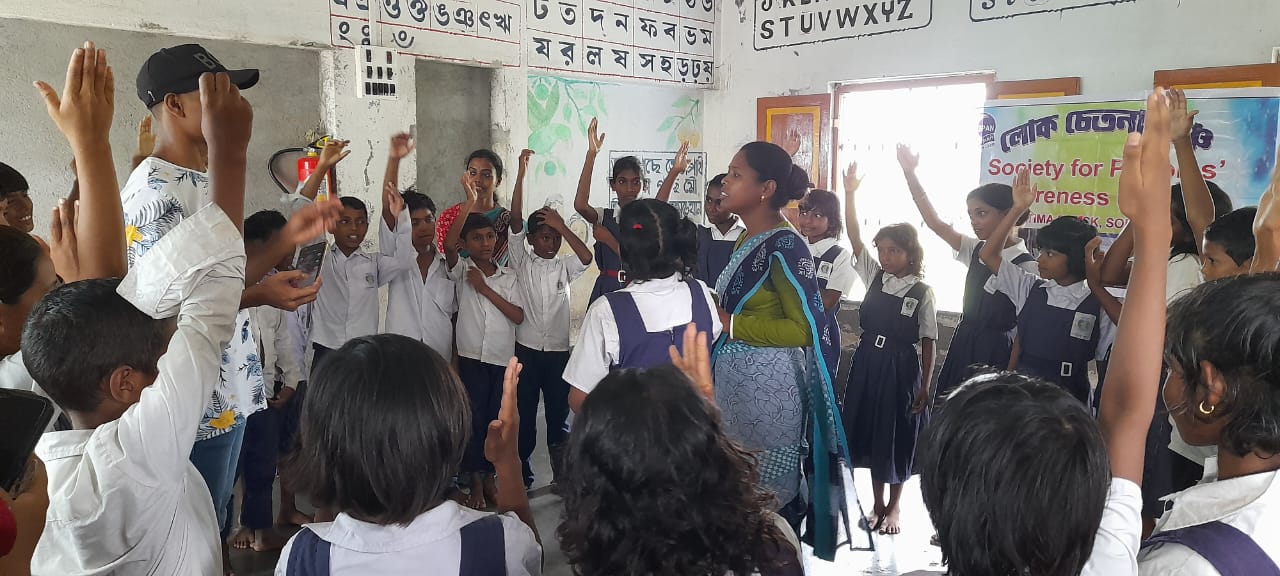Education
Home / Our Programs / Education
EDUCATION
Building a Brighter Future, One Program at a Time
Category :- Education
- South 24 Parganas, Dumka (Jharkhand)
Description
Pathochakra is a process towards agency building in school for the children of 10-14 years old between the classes of V to VIII enhancing their involvement in Knowledge area development through organising such activities, those demand digging information and know how resulting the children browsing through printed materials or materials in Internet. Such is the idea of escalating the reading habit among the students in these years.
Presently SPAN conducting regular "Pathochakra" sessions in 2 higher secondary schools of Basanti Block of South 24 parganas district of West Bengal and 1 middle school at Shikaripara Block of Dumka District of Jharkhand.
The process begins with holding regular sessions/workshops at schools with the students to plan certain activities, which have a connection to issues, which will profoundly impact their academic persuasion versatile.
Such exercises will generate an idea of forming clubs on climate, literature, culture, and science, and according to the interest children will fall in groups/clubs. Working in these clubs, student will get an opportunity to cultivate their skills and learn develop deeper understanding on each of topics under the broader headings of climate, literatre, culture, and science.
There could be three basic clubs - Green Club on Climate, Yellow club on literature and culture and Sience Club.
Category :- Education
- South 24 Parganas, Purulia, Jhargram, Paschim Medinipur, Dumka (Jharkhand)
Description
Open Assembly for Children's Learning (Pathshala) centres were organised by local Women Council (Narishakti) and Youth Council with the help of SPAN for the visibility of children in public life in an organised way to reduce vulnerabilities and ensure their regular attendance in school for quality education. Presently 10 Pathshalas are operational in 7 rural blocks of 5 districts of West Bengal and Jharkhand catering 249 children of 6-14 years of age. This children covered by Pathshala are mostly irregular in school or were school drop-out who recently connected to school.
Pathshala will ensure the following points:
- Head counting children to track the missing child if there is any.
- Ensure that all children attend there school regularly
- Help children to prepare there lessons for schools as most of them are first generation learner and there is nobody at their home to help them.
- Regular sessions for children on values, rights and entitlements and environment, ecology, and climate. Games, music, and theatre are also part of the activity in these sessions.
Youth from the villages who are the member of local youth councils provide their time as mentor for children in these Pathashala. These youth mentors are trained by SPAN and economically compensated jointly by the contribution nfrom local women councils and SPAN.
Category :- Education
- Kolkata, South 24 Parganas, North 24 Parganas, Purulia, Jalpaiguri, Alipurduar, Dumka (Jharkhand)
Description
Jeevan-Path is an initiative designed for children aged 6 years to 9 years enrolled in government schools, with a primary focus on bridging learning gaps and delivering quality education. This program recognizes that each student has unique learning needs and that education extends beyond academics. It encourages students to learn through imagination, observation, and hands-on experiences. The students are engaged in project-based learning, with projects tailored to their capabilities, allowing them to work independently. Jeevan-Path sessions are held daily at the primary government schools, providing continuous support for students' educational development. Currently, the program reaches 20 schools across five districts of West Bengal—South 24 Parganas, North 24 Parganas, Purulia, Jalpaiguri, and Alipurduar and one district of Jharkhand – Dumka. The program is benefiting 1400+ primary school student.
The Jeevan path sessions are facilitated for meeting twin objectives. First, the child should learn innovatively to fluently read, write correctly, comprehend, and solve appropriately. Second, children’s learning in classroom to be integrated with the environment outside and will restore school ecology (teacher-student, teacher-parents, parents-children, children-children) by caring concerns within the democratic polity of the country.
Regular workshops with children, youth, and teachers in primary school on language, Math and environment are being organised to boost the knowledge, skills, and practice and fill the learning gap in a fearless environment where rote learning is completely discarded.
SPAN is also ensuring all the children returning and cent percent attendance of children by making door to door visits to spread awareness around education and related issues.
26 local young graduates and college-goers as volunteers took leadership in the process. They got the initial training. They are participating in these Jeevan Path workshops and accelerate the learning process with the guidance of the local teachers. They are the child rights defenders of their locality.
Besides, Jeevan Path truly adheres the principles and norms evolved from the National Education Policies of 1968, 1986, 1992 and Kothari commission Report. It also follows and tries to see RTE Act as the reality. SPAN has developed a detailed module for Jeevan Path by consulting several teachers.




